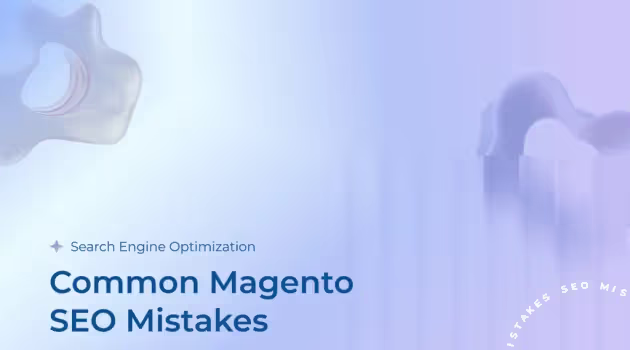Ever feel like your gorgeously built Magento store is just lost in the shuffle of search results? You put your all into your product selection and user experience, but potential buyers just can't seem to search you out. That will be enough to send any entrepreneur screaming into the SEO darkness. Fear not: Profstep is here to guide you through the SEO tunnel into the light of growing sales!
The first part of this blog will help you cut through the jargon and give you real battle planning to overcome common Magento SEO mistakes.
Get ready to dive through the duplicate content, keyword, and technical SEO traps.
Leave SEO jail and let us help you on your journey toward e-commerce dominance. Begin maximizing your Magento store for extreme potential to have mind-blowing revenues!
Ignoring Technical SEO Best Practices
While engaging content and proper keyword targeting are essential for SEO success, poor technical SEO practices result in worse rankings. Technical SEO is the unseen structuring of your website, guiding how search engines will crawl, index, and then rank your content. Here are the most common mistakes many retailers are making:
Lack of SEO-Friendly URL Structure
Have you ever been to a website with URLs that looked like a jumbled mess of letters and numbers? Yeah, not exactly user-friendly and, for that matter, certainly not SEO-friendly. That is because, well, your Magento store's URLs are very much the little road signs guiding both search engines and customers to the amazing products you've got.
Imagine an SEO-friendly URL like a headline: short, sweet, and informative with keywords that let people and search engines know what your page is about.
Here's how to craft winning URLs:
- Short & Sweet: A URL should be easy to read. It should be easy to remember. It's an extra special day when they're mobile-friendly, too!
- Keyword Magic: Just lightly sprinkle on the right keywords—don't keyword soup it.
- Clarity is key. Your URL should accurately reflect the content of the page; transparency is key!
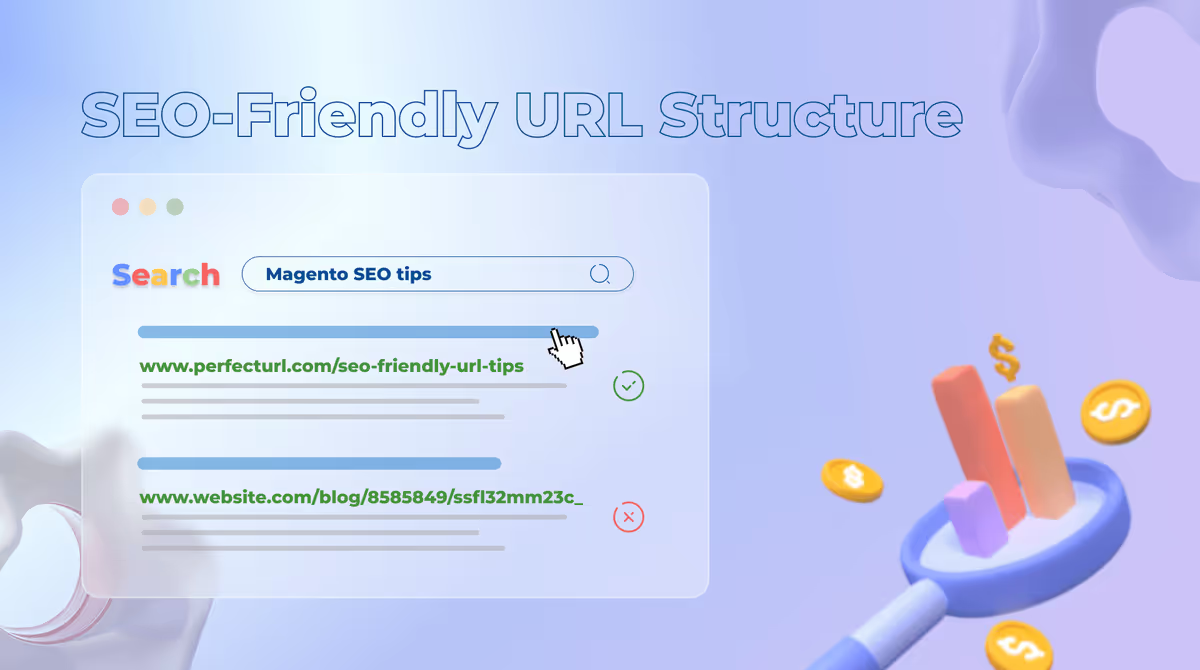
Improper Use of Meta Tags (Title, Description)
Meta tags might sound fancy, but they're actually little snippets of text that play a big role in your Magento store's SEO success. Think of them as catchy headlines and mini-descriptions that search engines and users see in search results.
But wait, there are some meta tag mistakes that you need to avoid:
- Missing in Action: Missing meta tags are like a silent movie—they tell no story and give users nothing to pick up from the search engines.
- Duplicate Drama: Having the same meta tags for every page is a recipe for SEO disaster.
- Keyword Anarchy: While keywords in meta tags may seem like a great idea, they can also scream spammy and hurt your ranking.
Here's how you write meta tags that rock:
- Headline Hero: Write clear, concise, and rich titles that accurately reflect the content of your pages.
- Description Dynamo: Craft descriptions that will get users to click. Highlight the benefits of your products and include a strong call-to-action.
- The Key to Uniqueness: Each page is worthy of its own meta tag. No duplicate copying!
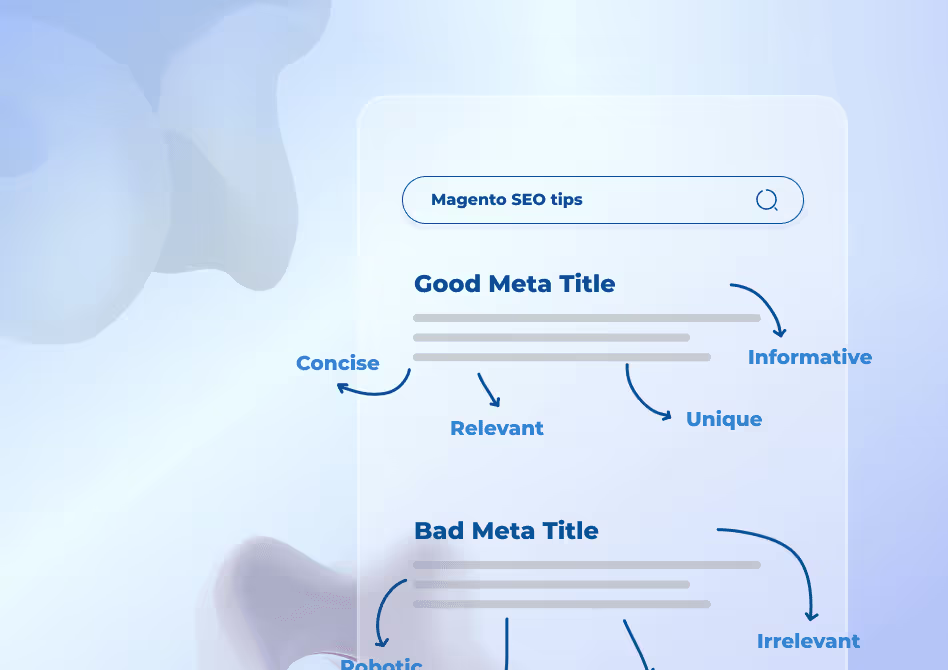
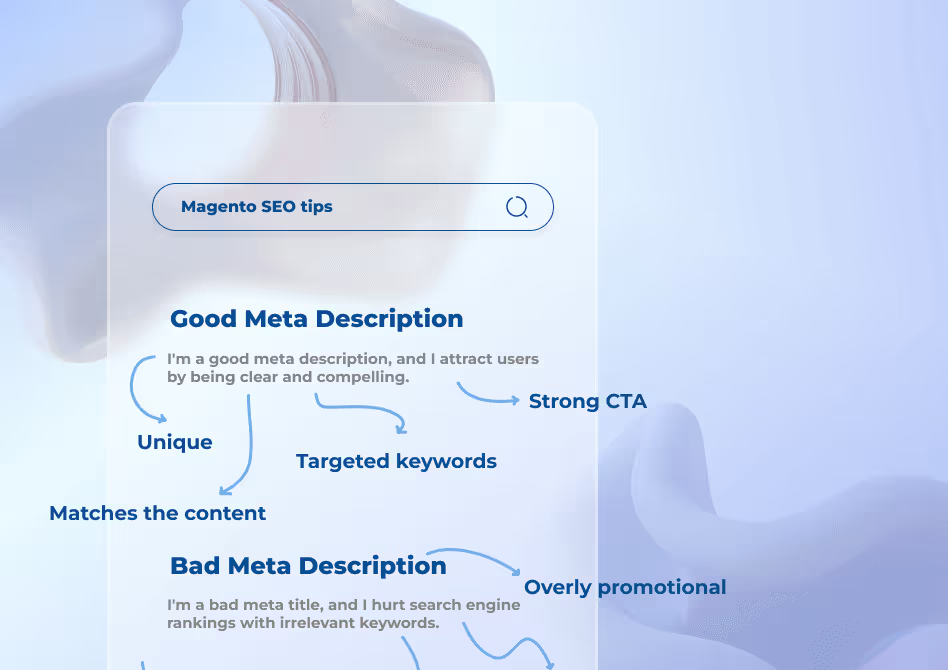
Issues with XML Sitemaps and Robots.txt
While a solid content strategy holds sway over the SEO landscape, overlooking technical considerations, such as XML sitemaps and robots.txt, can impact indexing.
These common mistakes include:
- Syntax Mistakes: In case of an error in syntax within the sitemap, it won't be readable by search engines, and hence, they can't discover your content.
- Outdated Information: If there is no update to sitemap for new or removed pages, then what is conveyed to the search engines may be incorrect messaging and may affect indexing.
To navigate these obstacles, we’re recommending:
- Syntax Scrutiny: The syntax of your XML sitemap should be carefully checked for faultless communication with search engines.
- Dynamic Updates: This is when you need to update the sitemap as often as changes are required in or to your Magento store.
Poor Content Optimization
While keyword targeting is a very critical element of Magento SEO best practices, success can become very tough without considering the power of high-quality content. Search engines have been developed over time to go in line with that content, carrying the relevant keywords while aligning with the intent of the users.
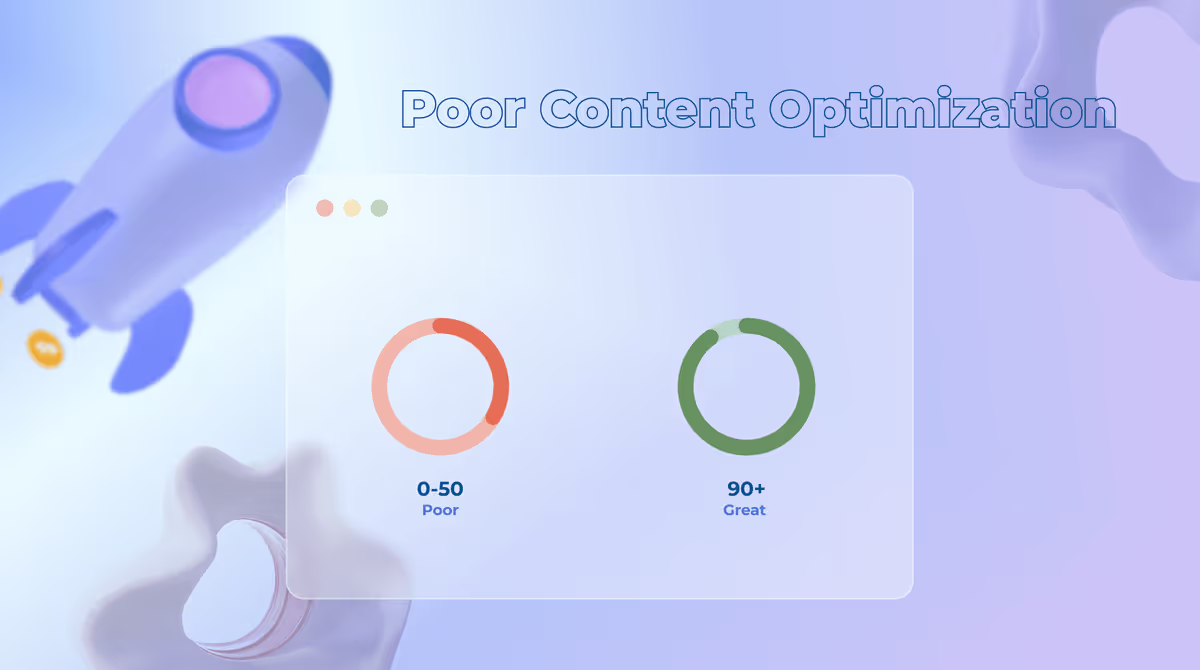
Thin or Duplicate Content
Ever feel like you're just churning out product descriptions that sound suspiciously similar? Yeah, that's the content danger zone right there. Here's the deal: search engines lust over new, valuable content.
That means getting rid of the
- Thin Content Trap: Imagine pages with minimal information or generic descriptions. This thin content offers little value to users and gets flagged by search engines.
- Duplicated Drama: Repeating the content on two or more pages can put your search engine ranking in serious peril. It can confuse the search engines and hold you down.
Where does that leave you for detecting such content culprits? Tools such as Google Search Console help with identifying duplicate content issues.
Here's how to create content that sings:
- Focus on Value: Craft informative and engaging product descriptions that answer user questions and highlight product benefits.
- Accept Uniqueness: Each page must contain its own fresh content. No copying or pasting is allowed!
- Address Your Audience: Research relevant keywords and address user search intent, i.e., what people are really searching for.
Lack of Keyword Research and Optimization
The right keywords are like signposts to people finding precisely what they're looking for.
Well, here's the thing: stuffing your product descriptions full of keywords like a pirate filling his treasure chest full of gold doesn't work. Common mistakes include:
- Keyword Overload. Dovetailing every keyword that exists may seem smart, but all it does is make your content spammy-sounding and harm your ranking.
- Keyword Mismatch. Using irrelevant keywords may yield some traffic, but it won't be the right kind. You're looking for what people are searching for, and it matches your products.
- Keyword MIA. Not having any keywords at all is like burying your treasure chest in the sand and not putting up a map—no search engine will find you!
So, how do you hit the SEO Goldilocks Zone? Here are some tips to prevent Magento SEO issues:
- Keyword Research Rescue: Identify the keywords that give good search volume using keyword research tools.
- Natural Integration: Weave keywords naturally into product descriptions, title tags, and meta tags. Imagine you are having a conversation without any script.
- Target User Intent: Go beyond just the keywords and think of what users really want to find when searching.
Ignoring Internal Linking and Anchor Text Optimization
Your Magento store is a real treasure trove of amazing products, but imagine that some sections were walled up and impossible to reach. That is what happens with internal links when they are not really taken care of. What is more, internal linking makes a kind of map inside your store by interlinking relevant pages and leading users through an easy shopping journey.
Watch out for these internal linking roadblocks:
- Broken Link Blues: When users encounter a clicked link that leads to nowhere—a frustrating experience and one that will hurt your SEO—check your links regularly for broken ones and fix them ASAP!
- Anchor Text The "clickable" text you see is a link. Generic terms, like "click here," actually tell the search engines nothing.
Here's how to create a linking network that rocks:
- Link Love: This is all about linking to relevant pages within your store. It engages and helps them find new products, keeps them interested, and raises your SEO.
- Keyword-Rich Anchors: It deals with the descriptive anchor text that has relevant incorporated keywords. These communicate to search engines what the linked page is about and help in ranking.
- Variety is Key: Don't stuff keywords; instead, mix up things with natural-sounding anchor text variations.
Profstep understands how difficult everything can sometimes get in the ever-changing SEO landscape. By correcting Magento SEO errors, you can greatly improve your store's search engine rankings and increase potential customers.
The next chapter will delve into crucial Magento SEO strategies often overlooked, such as mobile optimization and user experience (UX) factors. Additionally, neglecting performance monitoring and analytics can leave you blind to valuable insights for further refinement.
Together, step up with Profstep to take your Magento store to the highest search engine results and fix Magento SEO mistakes.
